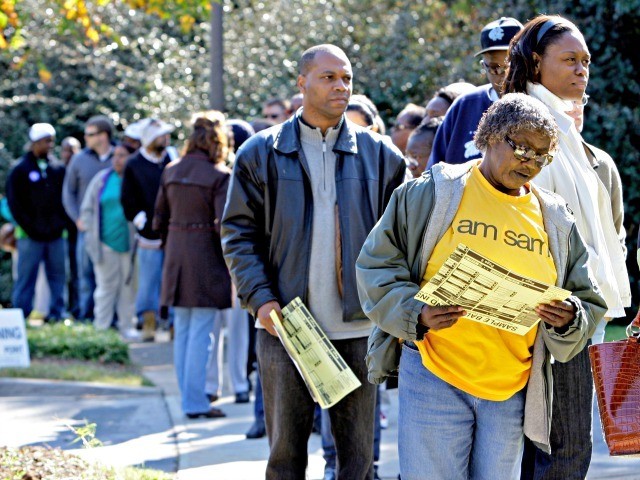One-third of likely black voters are less likely to purchase Coca-Cola after it spoke out against Georgia’s election integrity law — despite the false left-wing narrative that the law suppresses minority voters — a Rasmussen Reports survey released Wednesday found.
Coca-Cola is one of the first companies to speak out against Georgia’s law, which improves election integrity in the state, even increasing the mandatory days for early weekend voting.
During a March interview on CNBC, Coca-Cola CEO James Quincey called SB202, the election reform bill, “unacceptable” and a “step backward.”
In an April 1 statement, Quincey added the company wanted to be “crystal clear and state unambiguously that we are disappointed in the outcome of the Georgia voting legislation.” He also said the company’s focus would now be “supporting federal legislation that protects voting access and addresses voter suppression across the country” — a likely reference to H.R. 1, or the “For the People Act,” which would effectively strip states of their ability to implement basic election integrity measures, thereby nationalizing U.S. elections.
“We all have a duty to protect everyone’s right to vote, and we will continue to stand up for what is right in Georgia and across the U.S.,” he added.
In addition to woke corporations, Democrat leaders, particularly Senate Majority Leader Chuck Schumer (D-NY) and President Joe Biden have falsely characterized basic election integrity measures as racist attempts to suppress minority voters, even drawing comparisons to Jim Crow. Meanwhile, a majority of U.S. likely voters, 62 percent, said it is a “bad idea” for corporations to become involved in such political controversies, Rasmussen Reports found.
A majority of Republicans (76 percent), Democrats (51 percent), independents (63 percent), white Americans (62 percent), black Americans (56 percent), and other minority groups (67 percent) agree that it is a “bad idea.”
Respondents were also asked about Coca-Cola’s response to Georgia’s election law, specifically.
“After the Georgia legislature enacted a new election law requiring voter ID, Coca-Cola was one of the companies that publicly condemned the law. Does that make you more or less likely to purchase Coca-Cola products?” the survey asked.
Overall, a plurality, or 37 percent, said they were “less likely” to buy Coca-Cola products, while 30 percent said it “doesn’t make much difference” and 25 percent said “more likely.” One-third of black respondents agreed, stating they are “less likely” to purchase Coca-Cola products. Forty-four percent of other minority groups agreed.
Predictably, Democrats and Republicans held vastly different views, with 52 percent of Republicans indicating they are “less likely” to purchase the products, compared to a plurality, or 37 percent, of Democrats who said they are “more likely.”
The survey, taken April 15 and 18 among 1,000 likely U.S. voters, has a margin of error of +/- 3 percent.

COMMENTS
Please let us know if you're having issues with commenting.